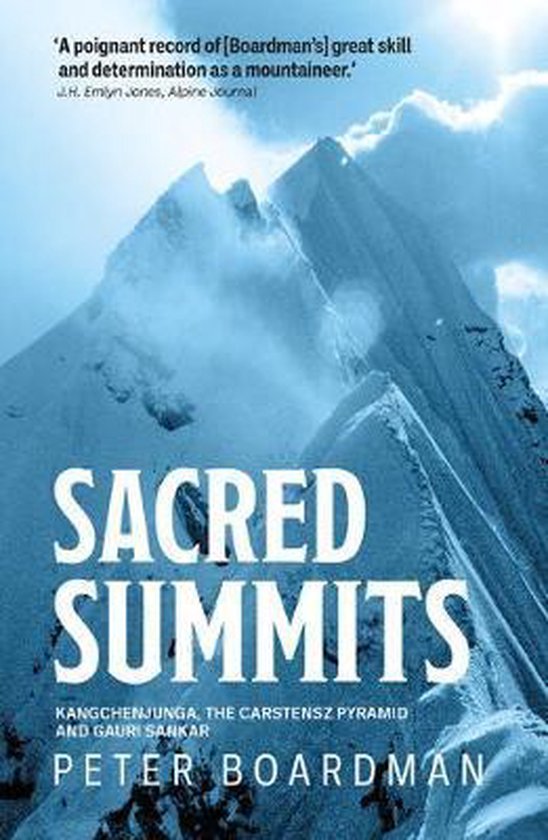Sacred summits

2 - 3 weken
Following a remarkable year of climbing, Peter Boardman's last book Sacred Summits recounts his trips to the South Face of the Carstensz Pyramid in New Guinea, Kangchenjunga and Gauri Sankar.
Mountaintops have long been seen as sacred places, home to gods and dreams. In one climbing year Peter Boardman visited three very different sacred mountains.
He began in the New Year, on the South Face of the Carstensz Pyramid in New Guinea. This shark’s fin of steep limestone walls and sweeping glaciers is the highest point between the Andes and the Himalaya, and one of the most inaccessible, rising above thick jungle inhabited by warring Stone Age tribes.
During the spring Boardman was on more familiar, if hardly more reassuring, ground, making a four-man, oxygen-free attempt on the world’s third highest peak, Kangchenjunga. Hurricane-force winds beat back their first two bids on the unclimbed North Ridge, but they eventually stood within feet of the summit – leaving the final few yards untrodden in deference to the inhabiting deity.
In October, he was back in the Himalaya and climbing the mountain most sacred to the Sherpas: the twin-summited Gauri Sankar. Renowned for its technical difficulty and spectacular profile, it is aptly dubbed the Eiger of the Himalaya and Boardman’s first ascent of the South Summit took a committing and gruelling twenty-three days.
Three sacred mountains, three very different expeditions, all superbly captured by Boardman in Sacred Summits, his second book, first published shortly after his death in 1982. Combining the excitement of extreme climbing with acute observation of life in the mountains, this is an amusing, dramatic, poignant and thought-provoking book, amply fulfilling the promise of Boardman’s first title, The Shining Mountain, for which he won the John Llewellyn Rhys Prize in 1979.
- 1 Bekijk alle specificaties

